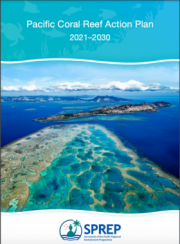News and Events
Coral reefs in the South Pacific: Outlook from the Global Reef ExpeditionWebinar, 18 August 2022, 11:00 AM-12:30 PM UTC +13The Pacific is home to around 27% of the world’s corals, spread out over vast areas. The remoteness of reefs and capacity constraints present unique challenges for Pacific States to gather scientific information.
|
|
|
|
Agenda
RegistrationWebinar will take place from 11:00am – 12:30pm, Apia, Samoa (UTC+13) on 18 August 2022. English - French Interpretation provided (meeting will be recorded and made available)
https://sprep.zoom.us/j/95838382943?pwd=eXJhUFVkMnRlbm1VS1Q3MzRYOXZoQT09 |
Vision
“By 2030, the resilience and health of reef ecosystems in the Pacific islands are improved.”
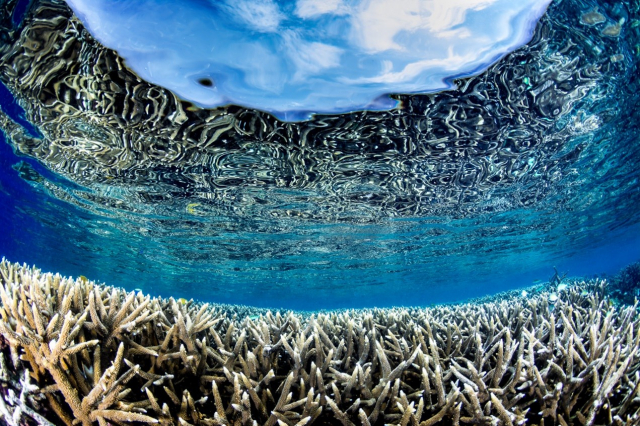
Credit: Matt Curnock / Ocean Image Bank
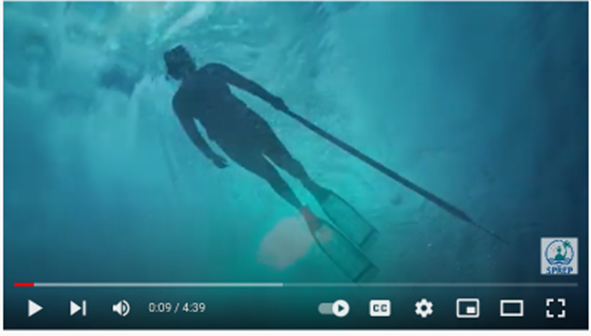
Coral reefs of the Pacific

Many Pacific coral reefs are being damaged by habitat disturbance, pollution, fishing and climate change; climate change is believed to be the greatest human-induced threat to corals in the Pacific region. To prevent Pacific coral reefs degrading further, substantial effort is needed. In recent years, Pacific Island countries and territories have implemented various coral-reef conservation projects but more action is needed. A regional approach driving collaboration, exchange and partnerships is therefore vital to help secure the future of the region’s reefs and the livelihoods of its people.
Pacific Coral Reef Action Plan 2021–2030
Developed with SPREP’s members and adopted in September 2021 at the 30th SPREP meeting, the Pacific Coral Reef Action Plan 2021-2030 enables leaders of Pacific Island countries, coral-reef managers and community members to coordinate their efforts to protect these valuable ecosystems. The Pacific coral reef action plan 2021–2030 intends to focus the region’s coral-reef conservation and management on four priorities over the next ten years:
- Conservation of habitats and biodiversity
- Sustainable fisheries and food security
- Resilience and adaptation to climate change
- Sustainable tourism
Local awareness, custodianship and traditional knowledge make an important contribution to each of these priorities.
Action Areas
The plan identifies 8 action areas where efforts and funding should concentrate.
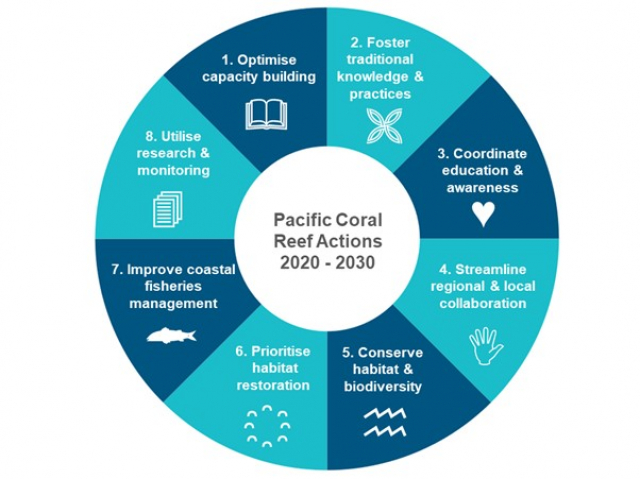
Access the Pacific Coral Reef Action Plan 2021–2030
Resources
To know more about the Coral Reefs of the Pacific Island region :
• The Sixth Status of Corals of the World: 2020 Report and its Specific chapter on the Pacific region
• The State of Environment and Conservation in the Pacific Islands: 2020 Regional Report
Additional resources
• International Coral Reef Initiative website:
• The United Nations Decade of Ocean Science for Sustainable Development (2021-2030)
PAST EVENTS
The science we need for healthy and resilient coral reefs in the Pacific10 March 2022 This Decade of Ocean Science Satellite event on A Healthy and Resilient Ocean gathered coral reef scientists, young scientists and students, donors, institutions and NGOs to discuss the Pacific Coral Reef Action Plan and the science and knowledge needed to contribute to conserving, restoring and managing 25% of the world's corals.
This event was part of the United Nations Decade of Ocean Science for Sustainable Development 2021-2030 Ocean Decade Laboratories series, sponsored by the Federal Ministry of Education and Research and the UNESCO Intergovernmental Oceanic Commission.
View the wrap up of the Healthy and Resilient Ocean Laboratory (Go to 1:17:35 for This event summary) |
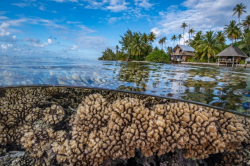
|
